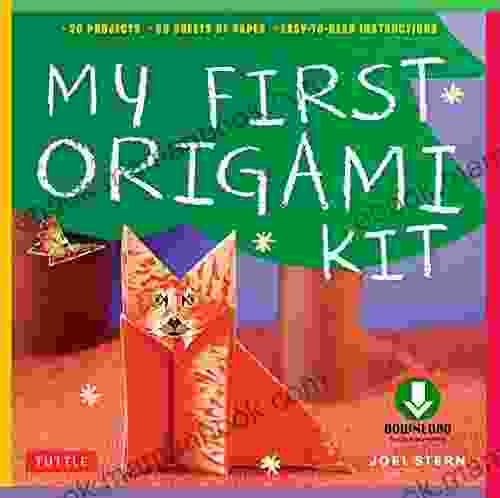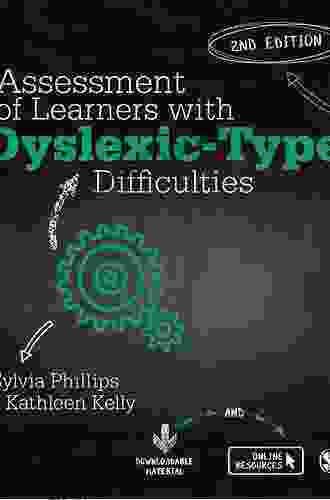Assessment of Learners With Dyslexic Type Difficulties

Dyslexia is a specific learning disability that affects the way a person reads, writes, and spells. It is a neurological disorder that affects the brain's ability to process language. Dyslexia can make it difficult for people to learn to read and write, and it can also affect their ability to spell, write, and understand mathematics.
4.7 out of 5
| Language | : | English |
| File size | : | 11189 KB |
| Text-to-Speech | : | Enabled |
| Enhanced typesetting | : | Enabled |
| Word Wise | : | Enabled |
| Screen Reader | : | Supported |
| Print length | : | 392 pages |
There are many different types of dyslexia, and each type can affect a person in different ways. Some of the most common types of dyslexia include:
- Phonological dyslexia: This type of dyslexia affects the ability to sound out words. People with phonological dyslexia may have difficulty blending individual sounds together to form words, and they may also have difficulty recognizing words that they have seen before.
- Surface dyslexia: This type of dyslexia affects the ability to recognize words by sight. People with surface dyslexia may have difficulty remembering the spelling of words, and they may also have difficulty reading words that they have never seen before.
- Mixed dyslexia: This type of dyslexia is a combination of phonological dyslexia and surface dyslexia. People with mixed dyslexia may have difficulty with both sounding out words and recognizing words by sight.
Dyslexia can also be accompanied by other learning difficulties, such as:
- Dysgraphia: This is a disorder that affects the ability to write. People with dysgraphia may have difficulty forming letters and words, and they may also have difficulty organizing their thoughts on paper.
- Dyscalculia: This is a disorder that affects the ability to understand and use numbers. People with dyscalculia may have difficulty understanding basic math concepts, and they may also have difficulty solving math problems.
- Attention deficit hyperactivity disorder (ADHD): This is a neurodevelopmental disorder that affects the ability to pay attention, control impulses, and stay organized. People with ADHD may have difficulty staying on task, and they may also be easily distracted.
- Executive functioning difficulties: These are difficulties that affect the ability to plan, organize, and execute tasks. People with executive functioning difficulties may have difficulty starting tasks, staying on track, and completing tasks.
It is important to assess learners with dyslexic type difficulties in order to determine the specific difficulties that they are experiencing and to develop appropriate interventions. There are many different types of assessments that can be used to assess learners with dyslexic type difficulties, and the type of assessment that is used will depend on the individual learner's needs.
Some of the most common types of assessments that are used to assess learners with dyslexic type difficulties include:
- Informal assessments: These assessments are typically conducted by teachers or other professionals who are familiar with the learner. Informal assessments may include observations of the learner's reading, writing, and spelling skills, as well as interviews with the learner and their parents.
- Formal assessments: These assessments are typically conducted by psychologists or other professionals who are trained in the assessment of learning disabilities. Formal assessments may include standardized tests, which are designed to measure specific skills, as well as clinical interviews and observations.
The results of an assessment can help to determine the specific difficulties that a learner is experiencing, and can also help to develop appropriate interventions. Interventions for learners with dyslexic type difficulties may include:
- Phonics instruction: This type of instruction teaches learners the relationship between sounds and letters. Phonics instruction can help learners to develop the skills that they need to sound out words and recognize words by sight.
- Sight word instruction: This type of instruction teaches learners to recognize words by sight. Sight word instruction can help learners to develop the skills that they need to read fluently.
- Multisensory instruction: This type of instruction uses multiple senses to teach learners. Multisensory instruction can help learners to develop the skills that they need to read, write, and spell.
- Cognitive training: This type of training helps learners to develop the skills that they need to think and reason. Cognitive training can help learners to develop the skills that they need to learn and remember new information.
- Accommodations: Accommodations are changes to the way that instruction is delivered or assessed that can help learners with dyslexic type difficulties to succeed. Accommodations may include things like providing extra time on tests, allowing learners to use assistive technology, or modifying the curriculum.
The assessment of learners with dyslexic type difficulties is an important step in the process of providing them with the support that they need to succeed. By understanding the specific difficulties that a learner is experiencing, educators can develop appropriate interventions that can help the learner to reach their full potential.
4.7 out of 5
| Language | : | English |
| File size | : | 11189 KB |
| Text-to-Speech | : | Enabled |
| Enhanced typesetting | : | Enabled |
| Word Wise | : | Enabled |
| Screen Reader | : | Supported |
| Print length | : | 392 pages |
Do you want to contribute by writing guest posts on this blog?
Please contact us and send us a resume of previous articles that you have written.
 Top Book
Top Book Novel
Novel Fiction
Fiction Nonfiction
Nonfiction Literature
Literature Paperback
Paperback Hardcover
Hardcover E-book
E-book Audiobook
Audiobook Bestseller
Bestseller Classic
Classic Mystery
Mystery Thriller
Thriller Romance
Romance Fantasy
Fantasy Science Fiction
Science Fiction Biography
Biography Memoir
Memoir Autobiography
Autobiography Poetry
Poetry Drama
Drama Historical Fiction
Historical Fiction Self-help
Self-help Young Adult
Young Adult Childrens Books
Childrens Books Graphic Novel
Graphic Novel Anthology
Anthology Series
Series Encyclopedia
Encyclopedia Reference
Reference Guidebook
Guidebook Textbook
Textbook Workbook
Workbook Journal
Journal Diary
Diary Manuscript
Manuscript Folio
Folio Pulp Fiction
Pulp Fiction Short Stories
Short Stories Fairy Tales
Fairy Tales Fables
Fables Mythology
Mythology Philosophy
Philosophy Religion
Religion Spirituality
Spirituality Essays
Essays Critique
Critique Commentary
Commentary Glossary
Glossary Bibliography
Bibliography Index
Index Table of Contents
Table of Contents Preface
Preface Introduction
Introduction Foreword
Foreword Afterword
Afterword Appendices
Appendices Annotations
Annotations Footnotes
Footnotes Epilogue
Epilogue Prologue
Prologue Joshua Becker
Joshua Becker Eloise Madigan
Eloise Madigan Tanya Provines
Tanya Provines Bill Finger
Bill Finger Gregory Berns
Gregory Berns Jason Deere
Jason Deere Dena Blizzard
Dena Blizzard Limborg
Limborg Martha Carr
Martha Carr Michael Shaw
Michael Shaw Christine Weimer
Christine Weimer Vicki Brooks Mcnamara
Vicki Brooks Mcnamara Benjamin Landry
Benjamin Landry Tugume Nicholas
Tugume Nicholas Drew Lindsay
Drew Lindsay Richard Woodman
Richard Woodman Johanna Bell
Johanna Bell John Kember
John Kember Jacky Kilvington
Jacky Kilvington Trevor Crane
Trevor Crane
Light bulbAdvertise smarter! Our strategic ad space ensures maximum exposure. Reserve your spot today!
 Natsume SōsekiFollow ·17.2k
Natsume SōsekiFollow ·17.2k Donald WardFollow ·19.6k
Donald WardFollow ·19.6k Preston SimmonsFollow ·4.5k
Preston SimmonsFollow ·4.5k James HayesFollow ·9.7k
James HayesFollow ·9.7k Rodney ParkerFollow ·15.4k
Rodney ParkerFollow ·15.4k Hector BlairFollow ·15.6k
Hector BlairFollow ·15.6k Julian PowellFollow ·2.3k
Julian PowellFollow ·2.3k Gene SimmonsFollow ·17.8k
Gene SimmonsFollow ·17.8k

 Ross Nelson
Ross NelsonHow to Have Fearlessly Curious Conversations in...
In a world increasingly polarized by...

 Isaac Mitchell
Isaac MitchellFew Things to Keep in Mind for a Successful Introduction...
Writing an series...

 Dallas Turner
Dallas TurnerThe Ultimate Easy Key for Beginners: A Comprehensive...
Welcome to the world of...

 Mitch Foster
Mitch FosterMy First Origami Kit: Ebook Downloadable Material...
Origami, the...

 Tony Carter
Tony CarterQuick, Easy, and Healthy Recipes to Treat Gut Infections...
Gut infections are a common problem that can...

 Adrian Ward
Adrian WardThe Mechanism Behind Italian Poetry In English: Poesia...
The world of...
4.7 out of 5
| Language | : | English |
| File size | : | 11189 KB |
| Text-to-Speech | : | Enabled |
| Enhanced typesetting | : | Enabled |
| Word Wise | : | Enabled |
| Screen Reader | : | Supported |
| Print length | : | 392 pages |












